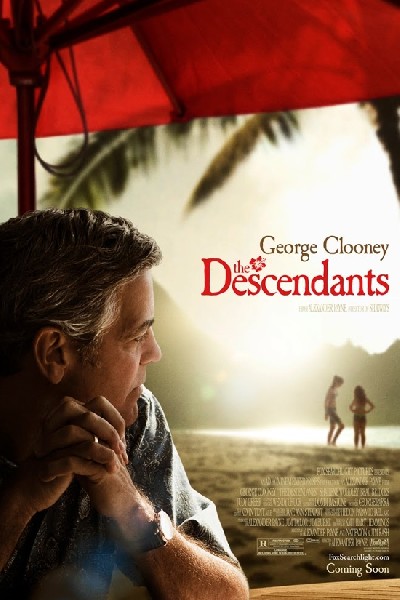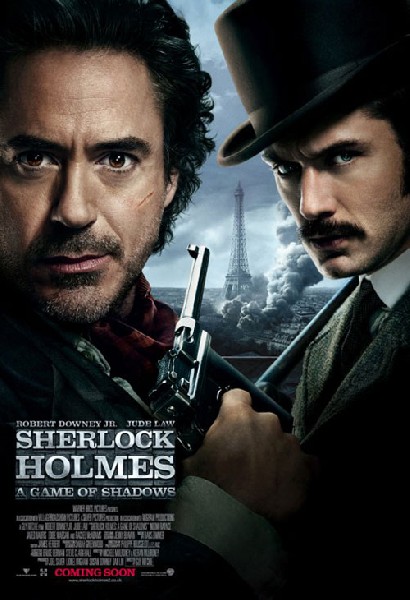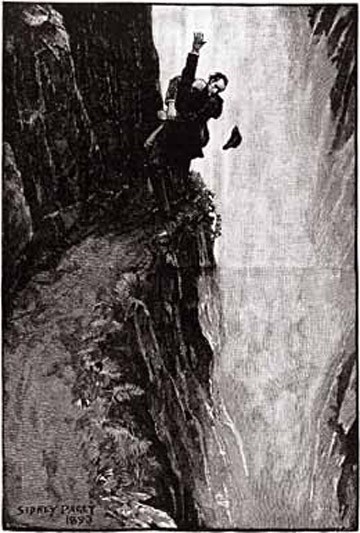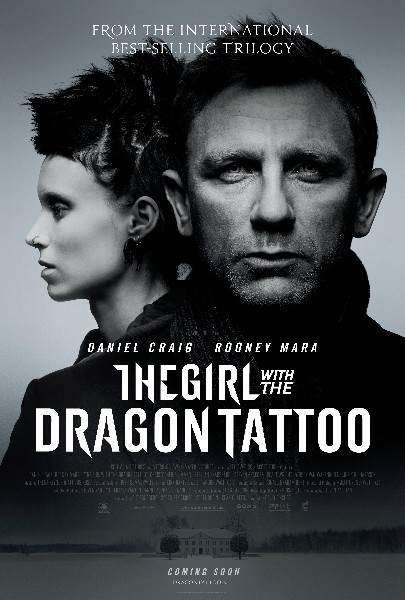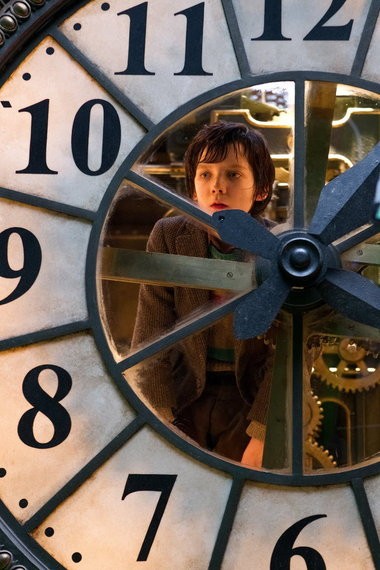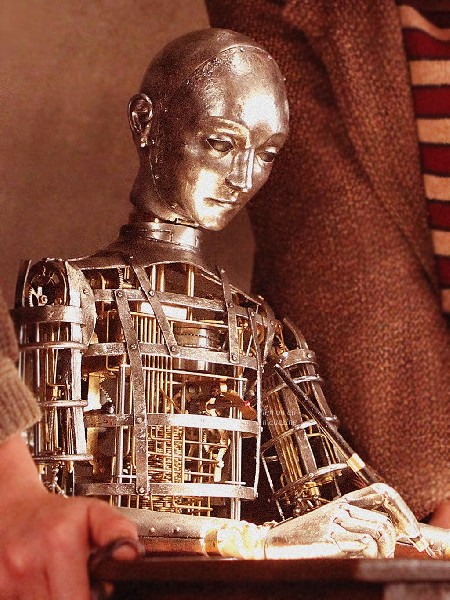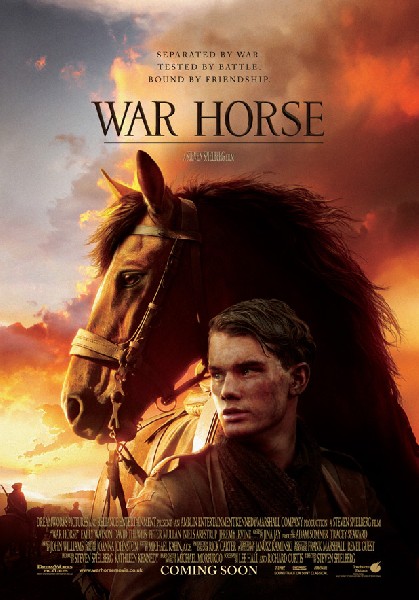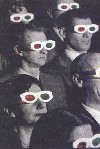Movie Mania
Major Films In Seasonal Abundance
By: Mark Favermann - Dec 27, 2011
Lately, besides the utter nonsense in the U.S. Congress, there is a whole lot going on in the dark. This 2011 holiday season, big, medium and small size movies have been sprouting like a cinematic garden of earthly and not so earthly delights. And for the most part, these films have been highly entertaining.
Though there are certainly a number of "smaller" good indie films that came out this season as well (Melancholia, Le Havre, Inside Hana's Suitcase, A Dangerous Method, The Skin I Live In or Lapiel que habito, etc.), the focus of the discussion will be on a number of the "bigger" movies. Several will be nominated for picture of the year.
George Clooney is the actor's actor to say the least, good looking, appealing, hardworking and thoughtfully taking chances in roles. The Descendants is a low key subtle story of a family in crisis but with a major difference. They are quite wealthy.
Clooney plays the formerly disconnected father and husband, Matt King. His character is a high profile attorney from a prominent Hawiian first family forced by circumstances to become the nurturing as well as supporting parent to his two sassy, strong-willed daughters. One daughter is a wonderful pre-teen and the other is an angry yet older than her years teenager.
He is not very good with them at the beginning of the story. The subplot of the story entails the sale or nonsale of a pristine, oceanfront property on Hawaii's northernmost island, Kauai. As sole executor, Clooney's character holds the fate of his extended family's fortune and the natural order of things. In the end, he develops into a father and man of integrity. The acting of all the characters is splendid. Clooney will get a Best Actor Oscar nod for this.
John LeCarre is a master spy story yarnteller. His list of mystery books is extensive. The best group of his excellent novels includes a cerebral, quiet nonsmiling British (MI-6) spymaster, ironically named George Smiley. Based upon his 1970s book, Tinker, Tailor, Soldier, Spy, the film has Smiley as its major focus.
Set greyly during the bleakest days of the Cold War, after being dismissed with his boss Control from the intelligence service, Smiley is recalled from retirement to uncover a Soviet agent, a mole, within MI6's inner circle at the Circus, the service's headquarters.
With various flashbacks the narrative unfolds. One of the subplots is the fact that Smiley's wife has been having an affair with one of his colleagues as well. Rivalries between various senior officials, spycraft and wonderful spy nomenclature (Reptile Fund, The Minders, etc.) add to the texture and suspense of the storyline.
The cast is made up a talented group of veteran British actors. Smiley is underplayed quietly and brilliantly by Gary Oldman. Colin Firth plays the smooth as silk Tom Hayden. John Hurt skillfully plays Control as an exasperated, seemingly out of control, spymaster. Oldman will get a Best Actor nomination and John Hurt a best Supporting one for this.
Other notables are Kathy Burke as insightful Connie Sachs, Benedict Cumberbatch as erstwhile Peter Guillam, Ciaran Hinds as a so correct Roy Bland, Tom Hardy as an intense Ricki Tarr, Toby Jones as an overconfident Sir Percy Alleline and Mark Strong as an indeciferable Jim Prideaux.
Directed by Steven Spielberg, The Adventures of Tintin (Les Aventures de Tintin) is a technically superior animated film based upon a series of classic comic books created by Belgian artist Georges Remi (1907–1983). He wrote under the pen name of Hergé. One of the most popular European comics of the 20th century, it has been published in more than 50 languages.
Set during the 20th century, the hero of the series is Tintin, a hyperadventurous teenage Belgian reporter. He is aided in his adventures by his faithful and at times genius energetic white dog Snowy (Milou in French).
In this 3-D film, Tintin is on the trail of a big story which leads him into a world of high adventure. When he and his friends find the directions to a sunken ship, The Golden Unicorn, they go off on a convoluted adventure to find the treasure it contained. Also, Tintin must face the notorious Red Rackham.
Full of the original comic's slapstick humor balanced with swashbuckling adventures embraced by fantasy, mysteries, and cliffhanging danger, Spielberg uses marvelous digital slight of hand to cast his magical narrative skill.
Long admired for its clean, expressive drawings, the series first appeared in French in a children's supplement to the Belgian newspaper Le XXe Siecle in January 1929. Its success led to serialized strips published in Belgium's leading newspaper Le Soir. Magazines, books, short films and television cartoons followed.
This animated film is the most technically sophisticated telling of a Tintin story. A criticism is that the first half was better than the second. However, there will probably be more to follow.
Consulting detective Sherlock Holmes is at it again. Guy Richie directs Robert Downey, Jr. as Holmes and Jude Law as Dr. Watson in another all hell breaks loose pastiche of various Sir Arthur Conan Doyle canonical plotlines, story twists, and great lines.
The cleverness is everywhere, and the action is at times exhausting. To Sherlokian devotees, it is a nearly two hour smile. Downey is his usual brilliant and physically arresting self. Law has created a singularly unique Watson.
Adding to the stew is Stephen Fry as a hilarious Mycroft Holmes. He calls his brother Sherly! The major female character, a gypsy queen Madam Simza Heron is played by Noomie Rapace. She also brilliantly played Lisbeth Salander in the Swedish film version of The Girl with the Dragon Tattoo.
Roughly, the film is influenced by Sir Arthur Conan Doyle's work The Final Solution about the life and death struggle of Sherlock Holmes and Professor Moriarity (played evily by Jared Harris), that Napoleon of Crime. However, it is an independent story with pieces of others of Doyle's Sherlock Holmes stories rather than a strict adaptation. Purists take note.
Every generation has its own version of Sherlock Holmes. Downey and Law are this generation's consulting detective and Dr. Watson. Happily, the third film in the series is now in development.
The late Sieg Larsson's trilogy about the bisexual, murderous, cyber genius, The Girl with the Dragon Tattoo, was alredy adapted into three quite good Swedish films. The subtitles worked fine.
Question: So why did we need an English language version?
Answer: Because this film could be better and clearer than the Swedish original.
This version of The Girl with the Dragon Tattoo is the first film in Columbia Pictures' three-picture adaptation of Stieg Larsson's worldwide bestselling The Millennium Trilogy. Directed by David Fincher, it stars Daniel Craig, Christopher Plummer, Robin Wright, Stellan Skarsgård, and Rooney Mara.
If you haven't read the books, you may be one of the very few culturally involved individuals who haven't. In short, the story is about recently disgraced Journalist Mikael Blomkvist (Craig) in his search about the mysterious disappearance and perhaps death of a young woman who has been missing for forty years. He is assisted by the Goth attired, cyberpunk, computer hacker, martial artist genius Lisbeth Salander (Rooney Mara).
The project is commissioned by the patriarch of one of Sweden's wealthiest industrialist families (Christopher Plummer). With assorted corporate criminals, sex fiends, unapologetic old Nazis, nasty older women and murders, Blomkvist and Salander peel away the layers of the story until they solve the mystery.
Even if you have read the story, this is a fascinating film.
Hugo directed by Marin Scorcese may be the biggest surprise of all the movies. Though certainly a children's film or a film for children of all ages, Hugo is much much more.
This film is shot in 3-D, and here 3-D makes perfect sense. Twelve-year-old Hugo lives alone in the walls of a major Paris train station between the two world wars, where his survival depends on his hardwork, stealth, forging for food and anonymity.
Hugo's world suddenly gets entangled with the life of a poetic, romantic young girl (Chloë Grace Moretz) and her eccentric guardian (Sir Ben Kingsley), the owner of a small, tawdry, toy booth in the train station. Lurking around is the Station Inspector (played with cunning delight by Sacha Baron Cohen) and his sleek doberman pincher henchman/companion.
Based on Brian Selznick's award-winning, imaginative New York Times best-seller, The Invention of Hugo Cabret, and told in flashbacks, dreams and dilemmas, Hugo is the astonishing adventure of a wily and resourceful boy (Asa Butterfield) whose quest to unlock a secret left to him by his father keeps him going. The result is his transformation and of all those around him.
Clocks, time (present, past and future), keys and clockworks including toys and a humanoid automaton are all characters in Hugo. The various ticking elements not only mark time but also signify humanity.
The film is deftly and rather miraculously Director Scorcese's homage to the history of cinema. Academy Award-wining Martin Scorsese always has brought his unique vision and dazzling gifts to unforgettable films. Hugo is another particularly unique film journey.
War Horse directed by Steven Spielberg is a blockbuster drama based upon the 1982 children's book by British novelist Michael Morpurgo. Set during WWI, it is also based upon the recent stage adaptation of the story.
From bucolic Devon, to the gritty and murderous trenches of the Somme, Spielberg applies his usually impressive narrative magic at creating a panoramic story and universal message of failure, hardwork and redemption. This is a visually eloquent story of a beloved horse, Joey, and his on again off again owner young Albert Narracott (played so ernestly by Jeremy Irvine).
If more about film craft than film content (perhaps a function of the book?), this movie has all the ingredients of tragedy and triumph. It entails a drunken once heroic failure as a farmer, husband and father (Peter Mullan), a long-suffering sensible wife and mother (Emily Watson), a nonbenevolent, petty landlord (Peter Thewliss), arrogant and stupid aristocratic commanding officers, brave working class lads, a heroic Tommy who saves the horse in No Man's Land (Benedict Cumberbatch), a dying girl and her loving grandfather. And, of course, a boy and his horse.
Such a sprawling visually beautiful film is a trademark of Spielberg. However, this one played on the heartstrings like longtime collaborator John Williams' musical score. Sentimental, a bit simplistic, and even somewhat expected? Perhaps, more than just yes. This was not necessarily Spielberg's best, but worth seeing and certainly worth a few tears.
By the way, one of many of the horses used was a major performer in the Seabiscuit movie of a few years ago. That horse is developing a major film career!
Literally the quietest film of the season is The Artist. It is a silent film. Lighted and shot with the best silent film techniques, this sweet film is a 21st Century homage to the golden age of the silent screen.
Set in 1927-1932 in Hollywood and handsome swashbuckling, acrobatic and carismatic George Valentin (think Douglas Fairbanks even to his elegant mustache) is a silent movie idol. During the premiere of his latest film, The Russian Affair, Valentin bumps into lovely Peppy Miller. She is a star-struck extra and aspiring actress. He gives her a small dancing role in his next picture. As their flirtation progresses, Peppy's career begins to take off, and Valentin rejects the next new thing, Talkies. Not a good move.
Soon, his marriage falls apart. His refusal to get involved in Talkies ends his studio contract, the Stock Market crashes as his life and fortunes are swirling downward fast. Peppy becomes a big star but keeps tabs on the failing George.
Eventually, things work out and all ends sweetly and well. This is a French film shot and played with good humor and high energy. A nice confection of a film rather than a full meal. Yet a confection worthy savoring.
George Valentin is played by French actor/comedian Jean Dujardin and Peppy Miller is played by Berenice Bejo. Bejo happens to be married to the film's talented director Michel Hazanavicius. Dujardin won Best Actor for this role at the 2011 Cannes Film Festival.
In a way, this year films went to the dogs. Often demonstrating brilliance even genius, dogs were stars in several of the films. Dr. Watson's bulldog, Gladstone, was always being chemically experimented upon by Holmes. Valentin's Jack Russel Terrier in The Artist was absolutely wonderful and heroic. Tintin's Snowy (supposedly a Fox Terrier) was talented and quite brilliant as well. The supporting rottweiller also acted very well.
However, the Station Inspector's Doberman was a villan character actor that underplayed his role exquisitely in Hugo. The two, supporting, long haired dachshunds in Hugo were quite natural and realistic.
The films of this season are all quite entertaining and sometimes even enriching. They are definitely a very good way to lose yourself and your troubles for a couple of hours at a time. Lately, there are a lot of good things going on in the dark.

